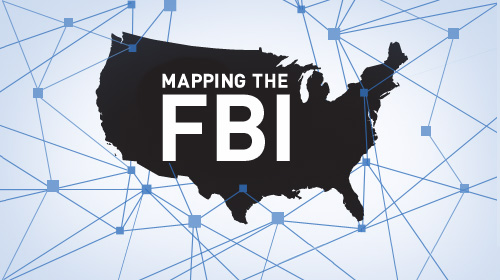
The ACLU’s new report on the FBI, “Unleashed and Unaccountable,” details how the bureau’s investigative and intelligence collection authorities have changed since the terrorist attacks of September 11, 2001, and how these changes have opened the door to a new era of abuse. Among the most troubling of these abuses are programs and policies that appear to show the FBI continues to harbor disturbing attitudes.
For many Americans, the FBI will always be infamous for its aggressive efforts to suppress the civil rights movement, most notably wiretapping Dr. Martin Luther King, Jr., and even trying to into committing suicide. One would think that with a history like this to overcome, the FBI would be particularly eager to avoid the appearance of targeting Americans for investigation based on race ever again. Which is what made it all the more shocking when in December 2008 the Justice Department and FBI adopted new policies that the initiation of a racial and ethnic mapping program throughout the United States. The program authorized FBI agents to collect demographic information from the U.S. Census to map American communities by race and ethnicity, to identify racial and ethnic “facilities,” and track certain racial “behaviors.”
We hoped that the incoming Obama administration would revoke these policies before they could be implemented, but during Attorney General Eric Holder’s nomination hearing the following month he said he wanted instead “.”
We wanted to see how they worked as well, so the following year 34 ACLU affiliates across the country issued Freedom of Information Act requests to obtain FBI documents and maps regarding these programs. What we found confirmed some of our worst fears, even though the FBI has so far refused to turn over or the kind of racial “behaviors” they are tracking.
The documents we did obtain show the FBI has justified the identification and mapping of racial and ethnic communities based on crass stereotypes about what types of crimes the different ethnic groups commit. So it mapped Chinese-American communities in San Francisco based on the argument that Chinese people had been involved in organized crime; identified Latino-American communities in New Jersey because the street gang MS-13 was largely made up of Latinos; located Muslim-Americans in Michigan because a number of foreign terrorist organizations were Muslim; and tracked the growth of the African-American community in Georgia to measure the threat of “Black Separatists.” If the mapping’s rationale is disturbing, then its purpose and likely use is equally, if not more, disturbing. The FBI’s identification of these communities increases the risk that they will be targeted for disparate treatment in future investigative and intelligence collection efforts.
We also obtained shockingly counterterrorism training materials that presented Muslim and Arabs as backward and violent and alleged an ongoing threat from “Black Separatists,” based on violent acts committed decades ago by groups that no longer exist. It is astonishing to see such materials produced by an agency that has been given billions of dollars to transform into a domestic intelligence agency. It’s not just morally and legally suspect, but factually incorrect and misleading. How could an agency charged with defending all Americans’ rights produce such biased and erroneous materials?
The lack of leadership from the top of the FBI and Department of Justice, combined with faulty training, is not the only problem. Members of Congress and advocates should look at the , which continues to struggle to diversify its ranks decades after pervasive racial animosity in the FBI leadership led them to actively undermine the civil rights movement. In 2012, less than 5 percent of the FBI Special Agents were black, and just over 7 percent were Latinos. By comparison, 13 percent of the is black and 17 percent Latino. , minorities make up 37 percent of the U.S. population, but only 17 percent of FBI agents.
This lack of diversity could be a real factor impeding the FBI, our premier national law enforcement agency, from enforcing the law equally—especially our U.S. civil rights laws. In fact, the lack of African Americans, Latinos, and other minorities can be crippling for an agency that is expected to understand the needs and challenges of America’s diverse communities. The president and the attorney general must insist that the FBI leadership change the messages it sends to its workforce (it could start by reissuing improved guidance on the use of race in federal law enforcement), rid itself of its deeply flawed training, and improve the FBI’s demographics. Otherwise, it will be much more likely continue to view non-white communities throughout the U.S. with undeserved suspicion, making our entire nation weaker, not stronger.
It is long past time for Attorney General Holder the FBI’s racial mapping program and to enact Justice Department policies that ensure law enforcement profiling based on race, ethnicity, religion, or national origin is relegated to just another ugly remnant from an unenlightened past.
Learn more about FBI surveillance and other civil liberties issues: Sign up for breaking news alerts, , and .

